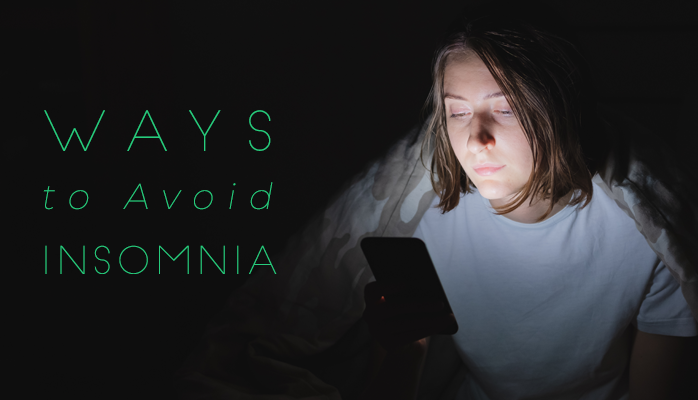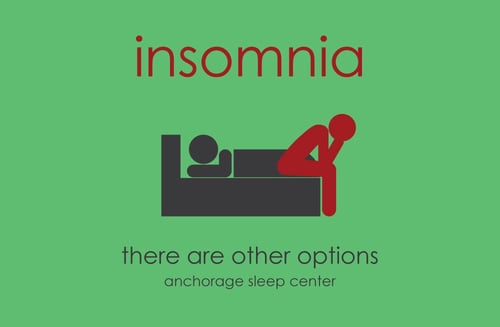What are Types of Insomnia
If you’ve had insomnia, or are dealing with it right now, then you know how frustrating it is and how challenging it can be to live a normal, happy life. Insomnia can make life extremely miserable. You may start to you feel and act like a different version of yourself, or be less productive in all areas of life. Insomnia can shorten your lifespan and lower the quality of life. So yes, taking steps to avoid it is well worth the effort.
Unfortunately, insomnia is not so straightforward. It is complicated by the fact that there are multiple types of insomnia. It is first divided into primary and secondary insomnia. Secondary insomnia is the direct result of another issue that is disrupting sleep (i.e. depression, anxiety, etc.). Primary insomnia doesn't have any other clear cause.
Insomnia can further be divided into acute and chronic. Acute insomnia is short-term and most likely will not lead to chronic sleep deprivation. However, chronic insomnia is long-term, and lasts for at least a month.
So in total there are 4 different ways you can live with insomnia:
- Secondary/acute insomnia – temporary insomnia in response to a known problem, like temporary illness, stress, etc.
- Primary/acute insomnia – temporary insomnia for no discernable reason
- Secondary/chronic insomnia – chronic insomnia in response to (usually) chronic life problem such as pain, long term illness, etc.
- Primary/chronic insomnia – chronic insomnia with no discernible cause
Let’s look at different ways we can avoid insomnia based on common root causes.
Avoiding Lifestyle Decisions that Can Cause Insomnia
Lifestyle factors often play a significant role in insomnia regardless of whether or not we can identify the cause. Some ways that we can ensure that our lifestyle is well adapted to avoiding insomnia (aka anti-insomnia lifestyle) are:
- Avoid smoking
- Avoid drinking alcohol in the hour before bed
- Avoid drinking too much coffee, and don’t drink it later in the day
- Avoid screens before bed, like TVs, computers, phones, etc.!
- Avoid eating too much before sleep
- Try and work on a schedule that fits your circadian rhythm
- Don’t exercise in the evening
- Create an excellent sleeping environment, namely one that is: clean, quiet, dark, and comfortable
- Have a pre-bedtime routine and a bedtime
These lifestyle choices may seem straightforward, but they can be amazingly difficult to follow with discipline. However, they will maximize your ability to ward off insomnia.
Psychology and Insomnia
Being emotionally and psychologically healthy is extremely important for getting good sleep and avoiding insomnia. Mainly, doing anything you can to avoid three major things can do wonders for avoiding insomnia:
- Depression
- Anxiety
- Stress (from marriage/job/health issues)
All three of the above can greatly contribute/cause insomnia. There is much information online about how to keep stress, depression, and anxiety at a minimum, such as healthy eating, exercise, calming techniques (yoga), etc.
Avoiding Insomnia as You Age
People over the age of 60-65 are more likely to have insomnia and report trouble with sleep. This is because as you age your sleep cycle will likely change in the following ways:
- Sleep is less restful at night
- You get tired earlier
- You wake up earlier
- You feel tired in the middle of the day
These changes are in response to natural hormonal changes, as well as the fact that older people are more likely to take medications that can affect sleep. A good way to avoid age-included insomnia are:
- Be aware that these changes will likely come
- Make room to take afternoon naps
- Don’t fight the change in your circadian rhythm (earlier to bed/rise)
In short, avoiding age-related insomnia is more about practicing self-awareness with your sleep and making sure you are adapting your sleep schedule to meet your needs.
On a biologically related note, it’s also important to be aware that insomnia is more common in women than men. Biological aspects of being female like pregnancy, premenstrual syndrome, and menopause can increase your risk for developing insomnia.
Treating Diseases/Conditions That Contribute to Insomnia
Disease can play a critical role in the development of insomnia. As a consequence, fending off certain diseases are an excellent way to stay healthy and avoid insomnia, which in turn can make the disease worse. Some diseases that are particularly linked to insomnia that we can often stave off with good habits are:
- Diabetes
- Kidney disease
- Heart disease
- Restless leg syndrome (RLS)
- Addiction to drugs/alcohol
Chronic pain also plays a significant role in insomnia. There are few good options here, as it’s hard to NOT be in chronic pain. In such cases, consult with your doctor about ways to find sleeping more comfortable.
Avoiding Medications that Contribute to Insomnia
Medications are more popular than ever, which isn’t good for your sleep. Furthermore, taking medications to fix one issue can cause insomnia that opens you up to a whole host of other problems. Limiting or avoiding the following medications can help you avoid insomnia:
- Diet pills
- Steroids
- High blood pressure medications
- Theophylline
- Phenytoin
- Levodopa
- Decongestants
If you live in Alaska and are worried that you are struggling with insomnia, please contact one of our sleep specialists.



